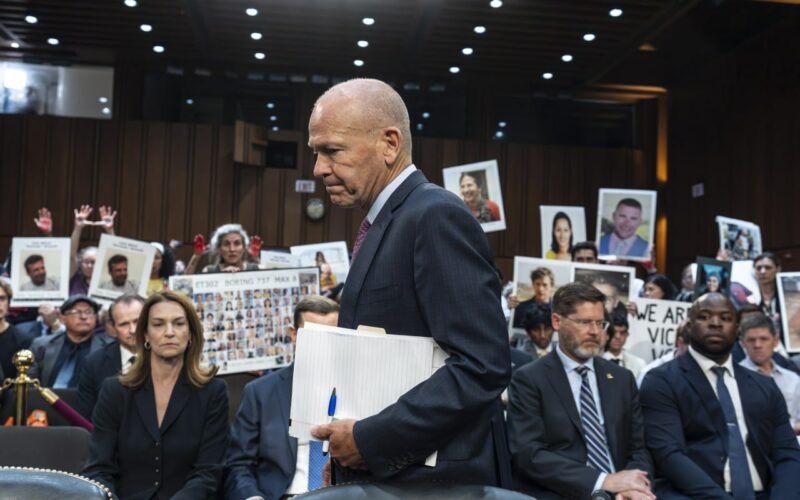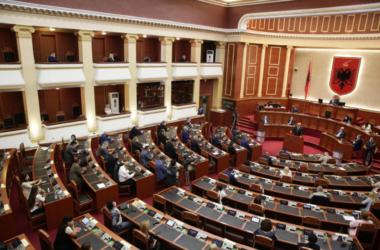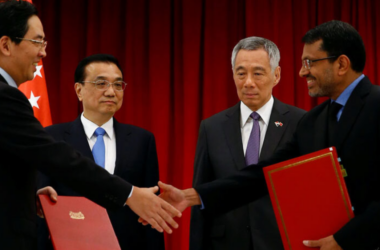Boeing has agreed to plead guilty to a criminal fraud conspiracy charge stemming from allegations of misconduct following two tragic crashes involving its 737 Max aircraft. This resolution follows intense scrutiny over the past few years, highlighting serious issues in Boeing’s safety practices and regulatory compliance. The plea agreement marks a significant turn in the company’s efforts to address its past actions and move forward.
The Background: Crashes and Controversies
The 737 Max, Boeing’s flagship model, was involved in two fatal crashes in late 2018 and early 2019, leading to the deaths of 346 passengers and crew. The crashes—Lion Air Flight 610 and Ethiopian Airlines Flight 302—prompted a global grounding of the aircraft, uncovering serious flaws in the Maneuvering Characteristics Augmentation System (MCAS), a critical flight control software.
In 2021, the Department of Justice (DoJ) charged Boeing with conspiracy to defraud regulators, alleging that the company had misled the Federal Aviation Administration (FAA) about the MCAS system. A deferred prosecution agreement was reached, which included a $2.5 billion settlement comprising a $243 million criminal fine, $500 million to compensate victims’ families, and $1.7 billion for airline customers.
However, Boeing’s compliance with the agreement came under question following an incident in January 2024, when a door panel blew off a Boeing plane operated by Alaska Airlines. Although no one was injured, the episode raised concerns about Boeing’s progress in addressing safety issues.
The Guilty Plea and Its Consequences
The DoJ found that Boeing violated the terms of its agreement, leading to the company’s decision to plead guilty to the criminal fraud conspiracy charge. This plea agreement includes an additional criminal fine of $243.6 million. While avoiding a protracted trial, Boeing now faces the stigma of a criminal record, an unusual and significant development for a major corporate and military contractor.
For the families of the crash victims, the plea deal has been controversial. They argue it allows Boeing to evade full accountability for the lives lost. Paul Cassell, a lawyer representing some of the victims’ families, criticized the agreement as a “sweetheart deal,” urging the court to reject it and push for a public trial to thoroughly examine Boeing’s actions.
Mark Cohen, a professor emeritus at Vanderbilt University who specializes in corporate punishments, suggests that plea deals can sometimes offer more effective sanctions than a trial, allowing the government to impose specific compliance requirements. However, Cohen notes the significant influence of Boeing’s status as a key government contractor on the settlement decision, highlighting the delicate balance between enforcing corporate accountability and considering broader economic implications.
Broader Implications and Future Outlook
Boeing’s guilty plea has several ramifications:
Reputational Damage: The admission of guilt and associated fines reinforce the perception of Boeing’s troubled safety and compliance culture. The company’s global reputation has been severely tarnished, affecting its standing in both the commercial and defense sectors.
Contracting Uncertainty: As Boeing has now acquired a criminal record, questions arise regarding its eligibility for future government contracts. While governments often suspend or bar firms with criminal records, waivers may be granted considering Boeing’s strategic importance.
Corporate Reform: The plea deal underscores the necessity for Boeing to enhance its safety practices and restore trust among regulators, customers, and the public. The company must demonstrate substantial progress in compliance and transparency to rebuild its credibility.
The resolution of this case represents a critical step in addressing the fallout from the 737 Max crashes. While Boeing seeks to navigate the repercussions of its past actions, the plea deal’s acceptance by a U.S. judge will determine the final terms and conditions. The broader impact on Boeing’s operations and its future role in the aerospace industry will be closely monitored as the company strives to rehabilitate its corporate image.
Ongoing Legal and Regulatory Challenges
Boeing continues to face investigations and lawsuits related to its manufacturing processes and the 737 Max issues. The company must contend with these challenges while implementing reforms to prevent future occurrences of similar incidents. Ensuring compliance and enhancing safety standards remain paramount as Boeing works to regain the confidence of regulators and the flying public.
As this high-profile case unfolds, the aviation industry and legal experts will observe Boeing’s efforts to meet the obligations of its plea agreement and the broader implications for corporate accountability in cases of severe misconduct.








